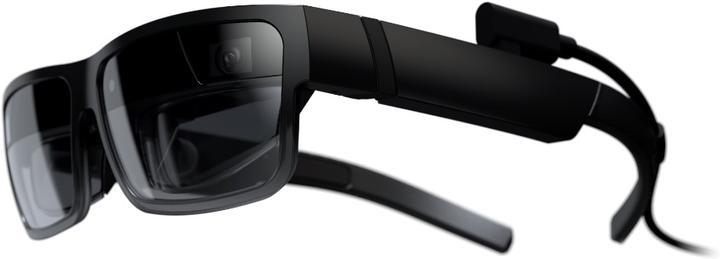

Zuckerberg on Rogan podcast: I endured a three-hour interview so you don’t have to
Interviews with Mark Zuckerberg are rare. Last week, Meta’s CEO spoke to Joe Rogan on the world’s most listened to podcast. Their conversation went on for a whopping three hours. Here’s the summary of a survivor.
Sixty-five. I counted. 65 times during his three-hour interview with Joe Rogan, Mark Zuckerberg said, «I don’t know». This astonishing cluelessness pretty much sums up the entire conversation. As part of my journey into Zuckerberg's universe, I listened to the podcast. It was a haystack full of platitudes. In it, I found five needles of knowledge:
1. Expect a new VR headset in October
The only real news was probably the reason Zuckerberg went on Rogan’s show. He announced a new virtual reality headset, scheduled for release in October, right at the start. The greatest innovation being a new face tracking feature that detects eye movements as well as facial expressions. According to Zuckerberg, this will allow you to have virtual meetings with eye contact in the near future. And if you smile, your avatar smiles with you in the Metaverse. That’s all the official information we have for now. However, he was probably talking about Project Cambria that leaked.

During the course of the podcast, Zuckerberg revealed that he sees virtual reality (VR) and augmented reality (AR) as the next generation of interaction between humans and technology. Allow me to explain: when you’re wearing a VR headset, you look at a display and are shielded from your physical environment. At best, that environment is recorded with cameras and shown on the display. This combination is referred to as mixed reality. AR headsets, on the other hand, are glasses you look through just like standard reading glasses. They project text, images and even digital holograms in front of your eyes, thereby enriching the physical world with digital extras.
Meta says it’s researching both types: AR glasses with a good form factor but trade-offs in image quality, and VR devices with high-resolution displays and cameras but trade-offs in form factor. The next generations will see the two technologies increasingly converge and even interface directly with the human brain.
2. The digital world to squeeze out the physical
During the podcast, Zuckerberg’s vision of the future surfaces. Anything that isn’t essential on a physical level can go. TV? A thing of the past. In the future, movies will be projected in the VR or AR glasses. Commuting? No longer a necessity, as you’ll be teleported to the office. Visiting your friends? Superfluous. Five years down the line and hologram Mark will be playing hologram poker with hologram Joe – on the virtual moon.
That sounds like a massive distraction!
Instead of physically meeting other people, we’ll be connecting with each other regardless of our locations. AR glasses will display text messages directly. With a subtle flick of the wrist, you can send an instant response. The glasses will read your mind. This example makes Rogan uneasy: «That sounds like a massive distraction! I’m already struggling to keep my daughter’s attention today because she’s always looking at her phone.» It’s one of the rare moments in the conversation when Rogan confronts Zuckerberg with a critical statement. Although I’m used to the host’s chummy interview style, I suspect there were some additional strict requirements imposed by Zuckerberg’s PR team.
Augmented reality is going to be a lot healthier for us than consuming all this content in a small portal like our phones.
The possibility that this kind of technology could make people feel less connected in their real lives doesn’t seem to be something Zuckerberg considers. Or maybe he doesn’t care. He firmly believes the Metaverse revolution is for the good of humanity: «Augmented reality is going to be much healthier for us than consuming all this content on a small portal like our smartphones.»

Source: Meta
3. Social media for the greater good
Where will all the time you spend in virtual or mixed reality come from in the future? If Zuckerberg has his way, it will be snatched from traditional media. «I don’t want the experiences that we have to be passive. There’s a lot of TV time we can devour,» he said, adding that he doesn’t want people to spend more time on screens.
I’d love it if in a couple of years, a significant part of Instagram and Facebook is us highlighting different creators that you might be interested in.
Ironically, the father of Facebook spends the next hour defending those algorithms used on his platforms that increasingly encourage passive consumption. His stated goal: letting artificial intelligence decide to a large extent what you see. Because it knows what you want better than you do.
4. Outsourcing responsibility instead of taking it yourself
The podcast provides little to no insight on disinformation and censorship. Zuckerberg always uses the same kind of arguments: if you’ve got three billion users, there are bound to be some problems. Meta’s way of dealing with the responsibility of managing the platforms with money. At five billion dollars, their «defense budget» is now said to be larger than that of most states.
I didn’t get into this to judge those things, I got into this to help people connect.
Among other things, Meta uses this money to pay external organisations to verify facts. They decide which content is penalised. By separating powers, Zuckerberg wants to escape responsibility: «I don’t want to judge these things. I want to help connect people.»
5. Mark Zuckerberg remains aloof
While Elon Musk smoked a joint during his infamous appearance on Rogan’s show – here’s the YouTube video – Zuckerberg remains unapproachable as usual. Although he does talk about shared hobbies including martial arts as well as his parents’ high expectations, he dodges the truly personal questions. For example, Rogan asks Zuckerberg and head of Meta three times how he deals with the pressure of influencing the reality of over three billion people. And three times, Zuckerberg immediately starts going on about papers on algorithms or fundamental problems.
So what remains? The impression of a man who lives in his own reality, on or beyond the threshold of self-confidence and arrogance, naivety and ignorance, vision and megalomania. A man who doesn’t seem to know what he’s doing – «I don’t know.»
My fingerprint often changes so drastically that my MacBook doesn't recognise it anymore. The reason? If I'm not clinging to a monitor or camera, I'm probably clinging to a rockface by the tips of my fingers.




